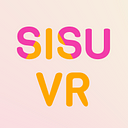4 Ways to Enrich Soft Skills Through Immersive Learning
Developing core skills, also known as soft skills, is essential for professionals to thrive in the workplace. But did you know 87% of companies worldwide have realized or anticipate a soft skills gap?
Organizations ought to stay up to date with ways to train, motivate, and engage their workforce. Immersive training, such as using virtual reality (VR), is not only a top-five 2023 HR training trend, but it is also becoming an increasingly popular way for employers to develop their organization’s soft skills.
From enhanced communication to improved problem-solving, immersive training offers a powerful modality to instruct. Let’s take a closer look at how immersive training can help employees build interpersonal skills.
1. Improved Communication
Effective communication is a critical skill inevitably used in all workplaces. With the help of immersive learning, employees can practice the art of communication with their colleagues in a safe and controlled environment.
For example, highly interactive experiences can be used to portray difficult conversations with in-simulation colleagues, customers, and clients. Active listening and speaking up are just some examples of ways to train in VR.
Moreover, employees can practice non-verbal communication, such as maintaining eye contact, using appropriate gestures, and maintaining a positive posture.
Lastly, employees can develop cultural awareness and sensitivity. Through realistic scenarios, they can learn how to communicate effectively with individuals from diverse backgrounds.
Immersive learning also enables employers to evaluate their employees’ communication skills more accurately. By tracking certain training interactions, employers can better understand their organization’s holistic communication style(s) and identify areas for improvement. For example, Walmart is using VR to train employees in various areas, including customer service and compliance. Employees can practice handling difficult customers and learn how to communicate effectively with them, leading to improved customer satisfaction and employee performance. VR enables employers to track employees’ progress to better understand their problem-solving skills and provide more targeted training and development.
2. Enhanced Collaboration
Being able to collaborate with team members is another essential soft skill. In an immersive training environment, employees can practice engaging in group activities that promote skill development and growth.
For instance, Ford has been utilizing VR training to improve collaboration amongst their engineers and visualize designs in 3D. Regardless of their physical location, employees were able to find solutions to complex problems and make decisions as a team. Overall, VR training has helped Ford to reduce the time and cost of product development, while also improving the quality of their designs.
3. Strengthened Problem-Solving
Through immersive learning, employers can create scenarios that allow employees to exercise problem-solving skills safely.
Employees can tackle complex challenges requiring them to identify issues, gather information, analyze data, and develop effective solutions.
For example, VR can be used to simulate customer complaints or technical issues. Since 2018, McDonald’s has been using VR to train its employees. The training was designed to mimic situations employees might encounter, such as how to manage their workload efficiently during a typical restaurant rush hour. The program has helped McDonald’s employees adapt to unexpected challenges and operate under pressure.
4. Bolstered Empathy
Exercising empathy is a highly valuable soft skill. In our previous article, we explored the importance of workplace empathy and how it can be cultivated.
VR training can help employees develop emotional intelligence by enabling them to uphold compassion and open-mindedness during conflicts or difficult conversations.
For example, Accenture is utilizing VR to help employees empathize with the experiences of disabled individuals. In fact, employees were able to experience navigating an environment as someone with hearing loss, vision impairment, or mobility challenges. Ultimately, the program helped employees better not only understand the challenges faced by individuals with disabilities but also design more inclusive solutions.
Being able to communicate effectively and work in a team environment can significantly affect one’s ability to navigate work situations and build robust relationships. And VR has the potential to revolutionize the way employers assess and develop their employees’ soft skills! Through immersive learning, employees can develop core skills essential for success in the workplace. In fact, interactive programs can help professionals become more confident communicators, effective collaborators and problem-solvers, and empathetic individuals.
Whether you are looking to develop these skills in your current or future employees, immersive learning can be a powerful tool to facilitate soft skills training. At Sisu VR, we create immersive experiences to build empathy and prevent inappropriate behavior. If you are interested in learning more about how VR can be used to train your organization, contact us today!
